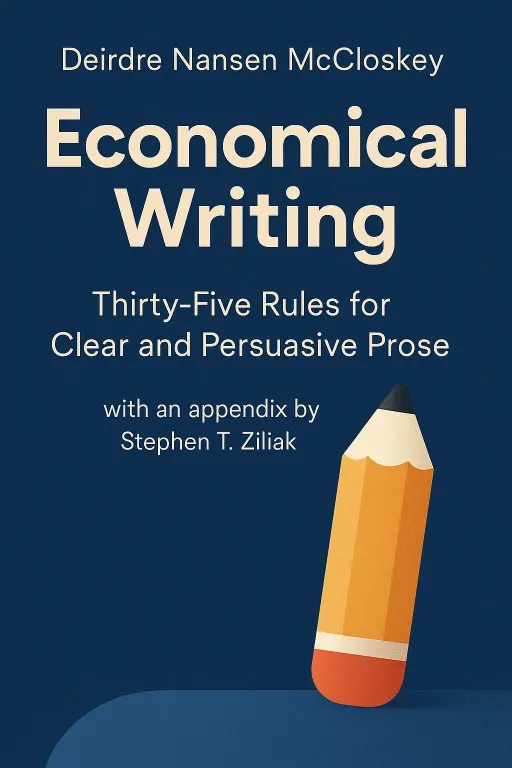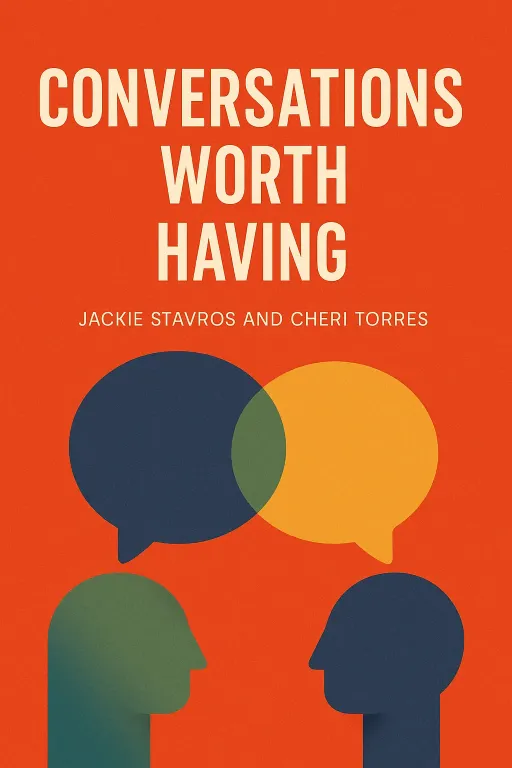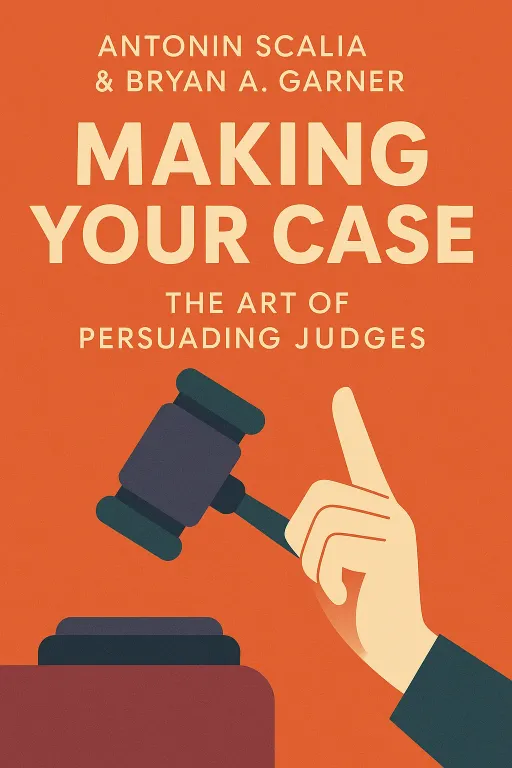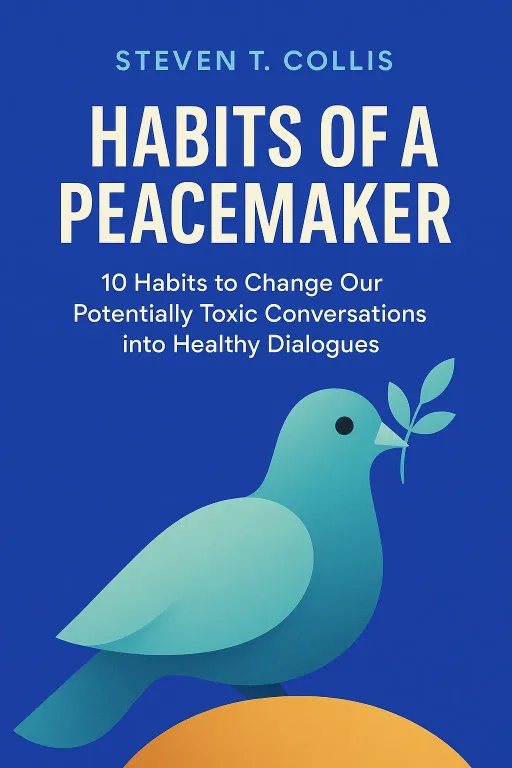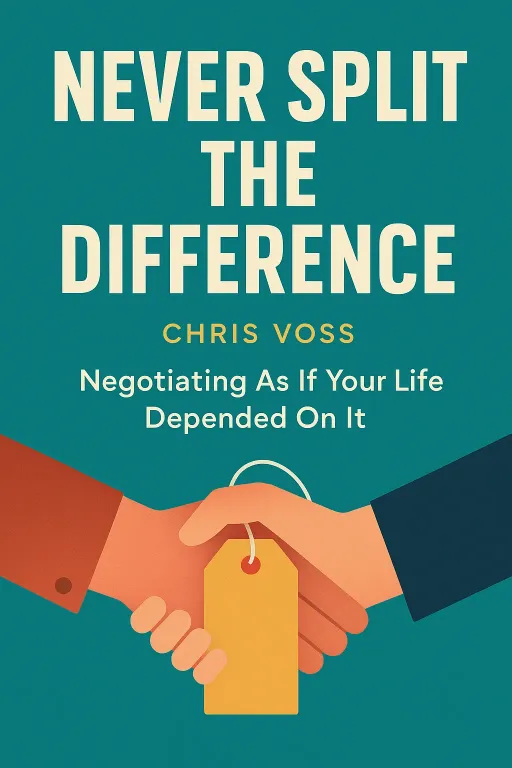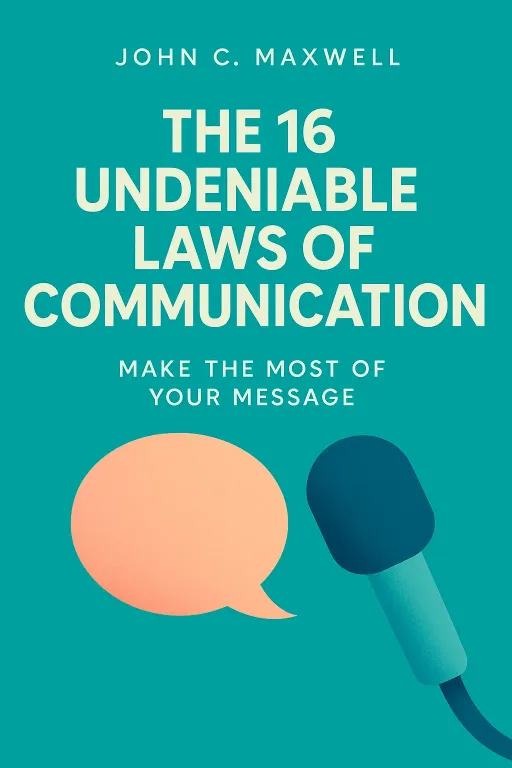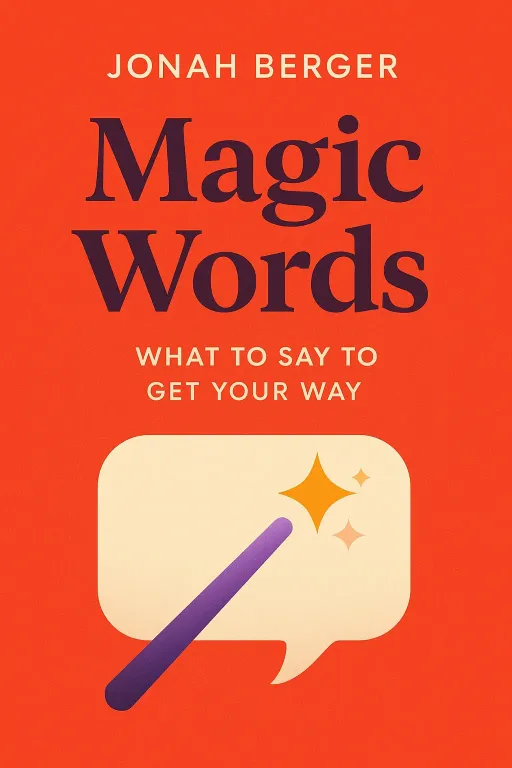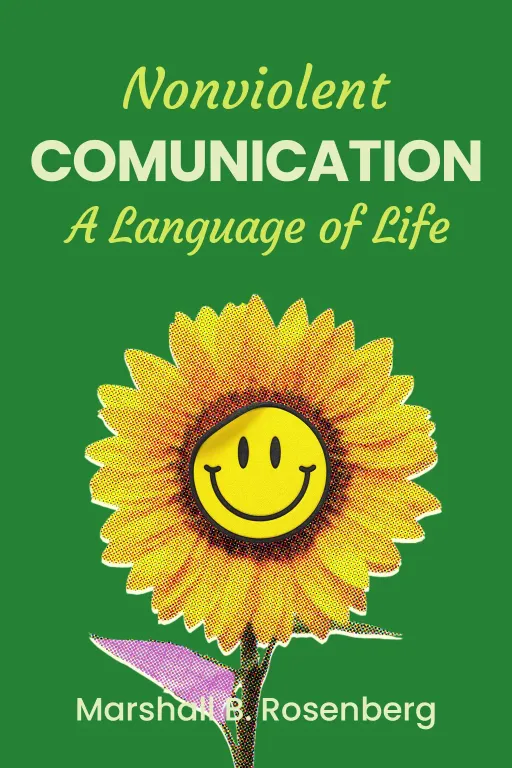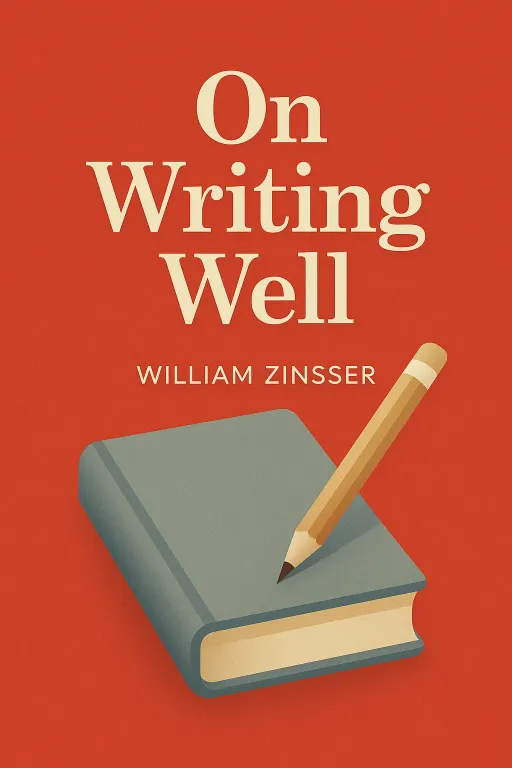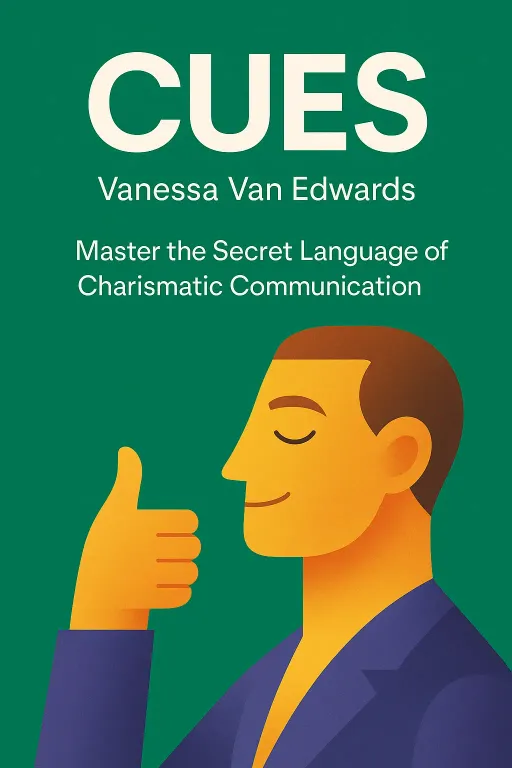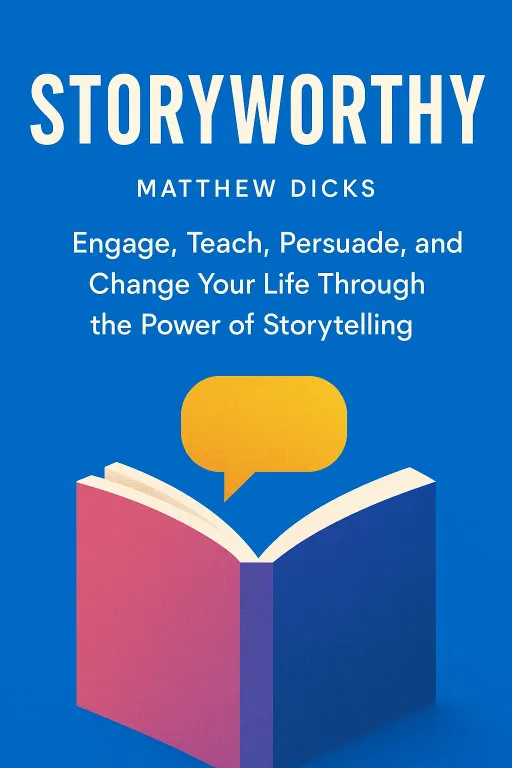
The Storyworthy Secret
11 minEngage, Teach, Persuade, and Change Your Life Through the Power of Storytelling
Golden Hook & Introduction
SECTION
Michelle: Your most dramatic, life-altering experiences—the car crash, the big promotion, the trip of a lifetime—are probably your most boring stories. Mark: Wait, what? That makes no sense. My story about getting lost in the Amazon is boring? Come on. Michelle: According to our book today, almost certainly. We're exploring why the secret to unforgettable storytelling lies in the moments you've most likely forgotten. Mark: Okay, you have my attention. This sounds completely backward. What book is making such a wild claim? Michelle: It’s the core, counterintuitive idea from Storyworthy by Matthew Dicks. Mark: Matthew Dicks... isn't he that guy who's won The Moth StorySLAMs, like, a ridiculous number of times? Michelle: Exactly. He's a 35-time champion, which is just absurd. But what's fascinating is that he's also a full-time elementary school teacher. And he argues that his best stories don't come from a wild, adventurous life, but from the same kind of daily grind we all experience. The problem isn't that our lives are boring, but that we don't know how to see the stories happening all around us.
The Storyworthy Mindset: Finding Gold in the Mundane
SECTION
Mark: I think that’s what everyone feels, right? "I don't have any good stories." My life is just work, commute, sleep. Where's the story in that? Michelle: Well, Dicks offers a very practical, almost deceptively simple solution. He calls it "Homework for Life." Mark: Ugh, homework. I’m already out. Michelle: (Laughs) Stick with me. It’s not what you think. The assignment is this: at the end of every single day, you take two minutes to reflect and ask yourself, "What was the single most storyworthy moment of my day?" Then you write it down in a spreadsheet. Just a sentence or two. That's it. Mark: Okay, but that sounds like a diary. How does a note like "Charlie threw peas" become a story? It feels trivial. Michelle: That's the magic of it. He tells this incredible story that started with that exact premise. He and his wife, Elysha, were at dinner with their kids. Their son, Charlie, who's almost three, keeps throwing food on the floor. First chicken nuggets, then peas. Dicks is getting more and more frustrated. It's a tiny, mundane, universal parenting moment. Mark: I can definitely relate. My toddler thinks gravity is a fun new game to play with her dinner. Michelle: Exactly. So Elysha says she'll ask the pediatrician for advice. The next night, she comes back and says, "The doctor said that when Charlie throws food, we have to take all the food away from him." Then she pauses and adds, "And I know that’s going to be hard for you." Mark: Why would that be hard for him? It sounds like standard parenting advice. Michelle: This is where the story turns. Dicks is confused, and he asks her why. And Elysha says, "Because I know that when you were a little boy, you didn’t always have enough food to eat. So taking food away from your son is going to be hard for you." And in that moment, Dicks is floored. He had never told her the specifics of his childhood hunger. She had just pieced it together over years of watching him, like how he always overpacks their daughter's lunchbox. Mark: Wow. Okay. That’s… a lot more than just peas on the floor. Michelle: Right! A tiny, frustrating moment became a profound story about being seen and understood by the person you love. The story isn't about the food-throwing. It's about the realization that his wife knows him better than anyone. And he would have completely missed that story if he hadn't been doing his "Homework for Life," training his brain to look for those small, meaningful moments. Mark: Honestly, that sounds great, but also like a lot of work. Who has time for that every single day? It feels like another thing to add to the to-do list. Michelle: He frames it as a two-minute mindfulness exercise that fundamentally changes how you experience your life. Instead of days blurring together, you start collecting these little gems. You start noticing. And he claims it actually slows down time, because you're paying attention. You're living more deliberately.
The Five-Second Moment: The DNA of Every Great Story
SECTION
Mark: Okay, so you've collected these tiny moments in your spreadsheet. You have a list of "threw peas," "dog did a funny thing," "saw a nice sunset." How do you know which ones are actual stories? Michelle: That's where Dicks's most brilliant, and simplifying, idea comes in: The Five-Second Moment. He argues that every great story ever told—every movie, every novel, every anecdote—is about a five-second moment of realization or transformation. Mark: Five seconds? That sounds a bit abstract. Can you give me a concrete example from a movie we all know? Michelle: He gives the perfect one: Jurassic Park. He asks, what is Jurassic Park about? Most people would say, "Dinosaurs." Mark: Yeah, obviously. Dinosaurs run amok. Chaos. Jeff Goldblum. Michelle: But Dicks says no. Jurassic Park is not a movie about dinosaurs. It's a story about a man who learns to love children. The entire movie is built to lead to a single, five-second moment. Paleontologist Alan Grant, who hates kids, is stuck in a tree overnight with the two children, Tim and Lex. They've just survived a T-Rex attack. As they sleep, he looks down at them, and a small smile plays on his lips. In those five seconds, he transforms. He realizes he could be a father. Mark: Whoa. That changes how I'll watch movies forever. He starts the movie by terrorizing a kid with a raptor claw, and he ends it by protecting them. Michelle: Precisely! And Dicks's rule is that the beginning of your story should be the opposite of your five-second moment. That's what creates the arc. The dinosaurs, the action, the spectacle—that's all just the vehicle to get us to that five-second human transformation. Mark: So for the "Charity Thief" story Dicks tells in the book, the five-second moment isn't about getting the gas money... Michelle: You got it. He's stranded, broke, and decides to impersonate a charity worker to get money for gas. He knocks on a door and a grieving man answers. The five-second moment is when the man gives him twenty dollars and Dicks realizes his own self-pity and loneliness are absolutely nothing compared to this man's profound, crushing grief. Mark: And the story starts with him feeling utterly alone and doomed... Michelle: ...and it ends with him understanding what true loneliness actually is. It's a perfect arc, all hinging on that one five-second realization on a stranger's porch. It’s a simple, powerful blueprint for any story. Find the moment of change, and then build everything around it.
The Storyteller's Toolbox: Stakes, Lies, and Connection
SECTION
Michelle: Once you have that five-second moment, the rest of the story is just architecture. And Dicks gives us some fascinating, slightly controversial tools for building it. Mark: I'm intrigued by "controversial." Let's start there. Michelle: (Laughs) Okay. He talks about the "Five Permissible Lies" of true storytelling. Mark: Hold on, "permissible lies"? Isn't this supposed to be true storytelling? That feels like a cheat. He’s a highly-rated author, but some readers have pointed out this part feels a bit slippery. Michelle: It does sound shady, but his rule is very clear: you only lie for the benefit of the audience, never for your own personal gain. The lies are about making the emotional truth of the story clearer. For example, one permissible lie is Compression. Maybe the events of your story took place over three days. For the sake of clarity and momentum, you compress them into a single afternoon. You're not changing what happened, just the timeline to make it a better experience for the listener. Mark: Okay, I can see that. You're cutting out the boring parts. What's another one? Michelle: Omission. This one is powerful. In that "Charity Thief" story, in real life, Dicks felt so guilty that he later found the man's address and mailed him the twenty dollars back, plus interest. But he never tells that part of the story on stage. Mark: But why? That's the redemption! That makes him look good! Michelle: Because the story is more powerful without it. The story is about the crushing weight of his guilt and his realization about loneliness. Ending it there, with him driving away as a "charity thief," leaves the audience with that raw, uncomfortable feeling. It's more emotionally true to the moment, even if it omits the full factual truth of what happened later. The story is better for the lie of omission. Mark: That is a fascinating and gutsy choice. It prioritizes the audience's feeling over his own image. Okay, what about making the audience care in the first place? How do you create stakes? Michelle: He has a great tool for this called "The Elephant." It's the big, obvious problem you put on the table right at the beginning. In "Charity Thief," the elephant is simple: "I'm stranded on the side of the road, and I have no money for gas." Instantly, the audience knows the goal. They're hooked. They need to know if you'll solve the problem. Mark: So you're not saving the problem for a big reveal. You're just stating it. Michelle: Exactly. You're telling the audience why they should listen. Another tool is the "Backpack." Before a moment of high tension, you metaphorically load up the audience's backpack with your hopes and fears. Before he knocks on that door, he tells the audience his plan: he's going to lie, he's going to pretend his mom died of cancer, he's going to steal money. The audience is now squirming, thinking, "Oh no, don't do it! What's going to happen?" They are carrying the weight of his decision with him. Mark: They're invested. They're leaning in. It's not just watching something happen; it's feeling it alongside him. Michelle: That's the whole game. It's about crafting an experience, not just reciting a series of events.
Synthesis & Takeaways
SECTION
Mark: So, it seems like the big takeaway isn't just about public speaking or being the life of the party. It's about paying more attention to our own lives and finding meaning in the small stuff. Michelle: Exactly. Dicks argues storytelling is a superpower because it forces you to live more deliberately. It slows down time. By doing your "Homework for Life," by looking for your storyworthy moments, you stop letting life just wash over you in a blur. You start collecting these moments, and in doing so, you realize your life is far richer and more meaningful than you thought. Mark: And it makes you a better connector. Because you're not trying to impress people with your Amazon adventure story that no one can relate to. You're sharing a story about your kid throwing peas, and suddenly everyone in the room is nodding along because they've been there. Michelle: That's the heart of it. It’s about finding the universal in the specific. The book is highly praised for this, but it's also faced some criticism. Some readers find his tone a bit brash or self-congratulatory, with all the talk of his awards. Mark: I can see that. But you could also argue he's just establishing his credentials. He's not just theorizing; he's lived this on stage hundreds of times. Michelle: I think that's right. And the core message is ultimately one of empowerment. He’s saying this incredible tool for connection, persuasion, and self-reflection isn't reserved for a talented few. It's available to anyone willing to do the homework. Mark: So the challenge for our listeners is simple, and it's Dicks's challenge to all of us: Tonight, before you go to sleep, just ask yourself: what was the most storyworthy moment of my day? Just one sentence. Try it for a week and see how your perception of your own life changes. Michelle: A perfect takeaway. Mark: This is Aibrary, signing off.
